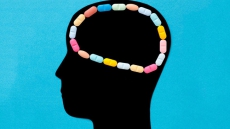If it seems like more and more people are on diets these days, you might not be imagining it.
A higher percentage of Americans said they’re on a special diet to lose weight or for other health reasons compared with a decade ago, according to a report Tuesday by the U.S. Centers for Disease Control and Prevention.
The increase comes as obesity rates have continued to climb. The CDC report found that 17% of Americans said they were on diets during the 2017-2018 survey period, up from 14% a decade earlier. Over the same period obesity rates rose in the U.S. to 42% of Americans, up from 34%.
The percentage of Americans who said they’re on a diet is lower than expected given prevalence of diet-related diseases in the country, said Dana Hunnes, a professor of public health and nutrition at the University of California, Los Angeles.
The report notes that about half of American adults have diet-related chronic conditions, such as diabetes and heart disease, and that special diets are a way many people try to manage them. Hunnes cautioned, though, that many people might not consider the way they eat to be a diet.
The report also looked at responses between 2015 and 2018 to determine other characteristics of people on special diets:
—The heavier and more educated people were, the more likely they were to report being on a special diet. The report found 23% of Americans who are obese said they were on diets, compared with 17% of overweight people and 8% of people who were normal weight or underweight.
—More women reported being on a diet than men.
—18% of non-Hispanic white Americans, 16% of Hispanic Americans and 15% of Asian and Black Americans said they were diets.
—A higher percentage of people 40 and older said they were on diets than those ages 20 to 39.
—Between 2007-08 and 2017-18, diets described as “weight loss or low calorie” grew in popularity, and remained the top category of special diet. Low-carbohydrate diets gained in popularity, while low-fat and low-cholesterol saw a decline.
The findings were based on an ongoing national survey in which participants were asked: “Are you currently on any kind of diet, either to lose weight or for some other health-related reason?”
Becky Ramsing, a registered dietitian and senior program officer at Johns Hopkins Center for a Livable Future, said that the dietary changes people make in hopes of losing weight can vary greatly. And in some cases, she said people might not understand why the choices they're making aren't leading to weight loss.
“They won’t eat bread, but then they’ll go eat a lot of other things that are higher in calories,” she said.
Many diet trends often focus on banning particular foods, Ramsing said. But to make lasting changes, she said people should consider their overall patterns of eating. That will also help address another pitfall of diets, she said: They're hard to stick to over time.
___






